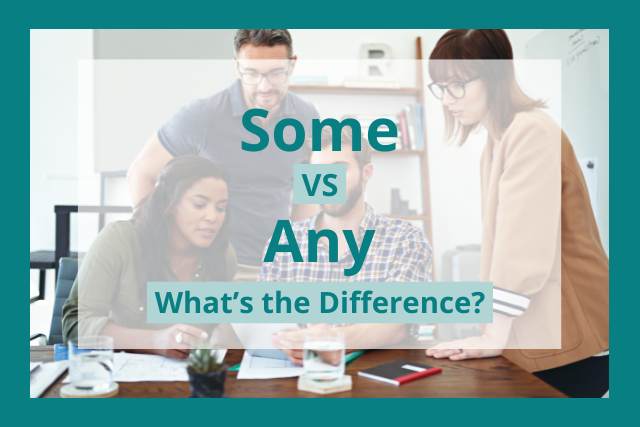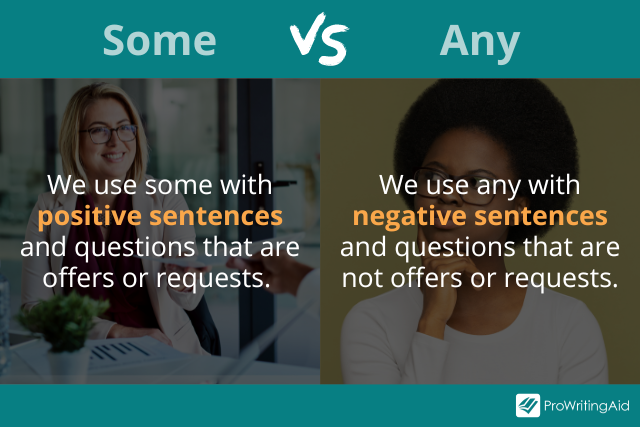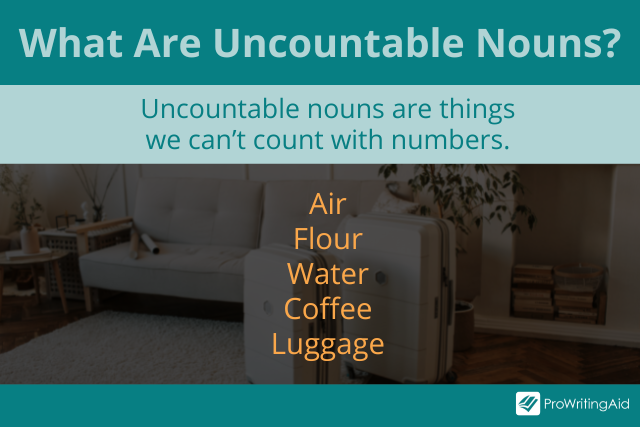
One tricky English grammar rule involves the difference between some and any. Both are words you can use when you don’t want to specify a number or an exact amount of something, but they’re not actually interchangeable.
So when should you use each word?
The short answer is that some is usually used in positive sentences, while any is used in questions and negative sentences.
Read on to learn more about some vs any and how to use these words correctly in your writing.
What’s the Difference Between Some vs Any?
The main difference between some and any is that you should use some in a positive sentence and any in a negative sentence.
Let’s look at the meanings of some and any in more detail.

When to Use Some
Some is a word you can use when you’re describing uncountable nouns, or when you’re describing countable nouns but don’t care about the specific amount.
Uncountable nouns are things we can’t count with numbers, such as water, air, and flour. If you’re feeling thirsty, you would just say "I want some water,” not "I want a water.”

You should use some instead of any in positive sentences, also called affirmative sentences—in other words, sentences that state that something is true, rather than that something is false.
For example, you might say, “I saw some fish at the aquarium.” This example is a positive sentence because you’re saying that you did see fish. Since the exact number of fish you saw isn’t important, some is a good word to use instead of a specific quantity.
You can also use some in a question, but only if that question is an offer or a request. For example, you might say, “Would you like some water?” or “Can I please have some water?”
When to Use Any
Any is also a word you can use with uncountable nouns. The difference between any and some is that you should only use any in negative statements.
Negative sentences are sentences that state that something is false. You can turn a positive sentence into its negative form by adding a word like not, never, and without.
For example, you might say “I did not eat any of your cookies.” This example is a negative sentence, since it states that something isn’t true. Therefore, any is the appropriate word, not some.
On the other hand, you wouldn’t say “I ate any of your cookies.” This example is a positive sentence, so some would be the right choice: “I ate some of your cookies.”
As a general rule, you should also use any when you’re asking a question. For example, you might say, “Have you read any good books lately?” The only exception is when that question is an offer or a request.
Some vs Any Examples in Sentences
The best way to learn spelling and grammar is through examples. Here are a few examples sentences of some in a sentence:
- I have some clean clothes.
- I made some new friends at school.
- Do you want to do something fun tonight?
- Can I have some more ice cream, please?
- Tell me some funny jokes.
- I need somebody to talk to.
Now let’s look at a few examples sentences of any in a sentence:
- I never have any clean clothes.
- Did you make any new friends at school?
- Are you doing anything fun tonight?
- You can’t have any more ice cream.
- I don’t know any funny jokes.
- I don’t have anybody to talk to.
Conclusion on Some vs Any
There you have it—the complete guide to distinguishing between some vs any.
If you’re not sure about some of your word choices, you can run your writing through ProWritingAid any time. ProWritingAid will point out when you’ve used the wrong word, so you can correct your writing and publish with confidence.

